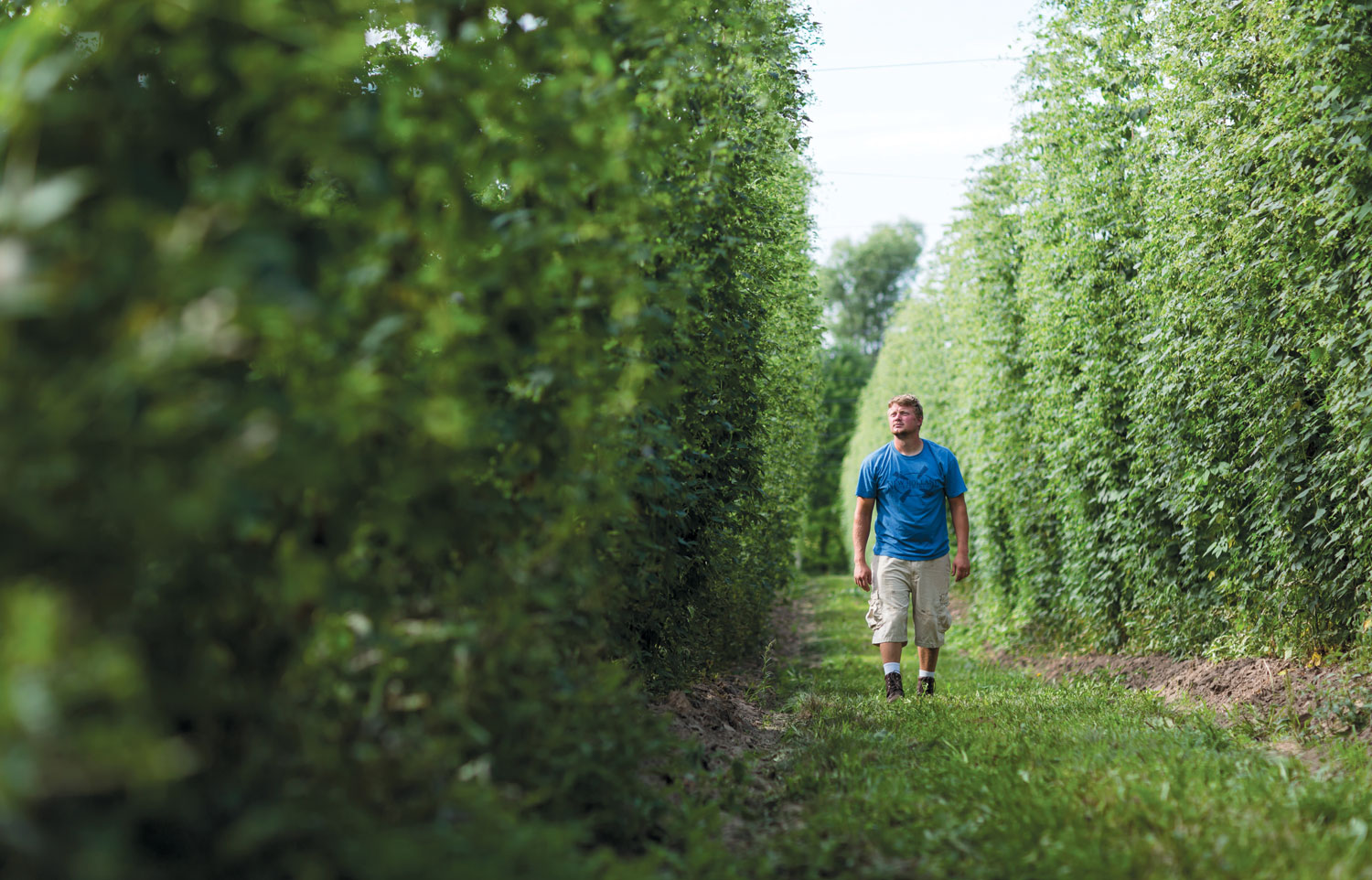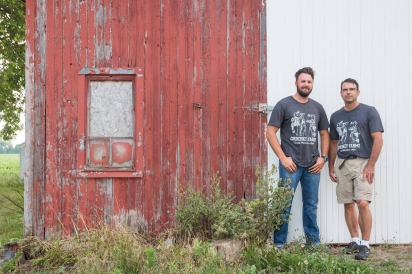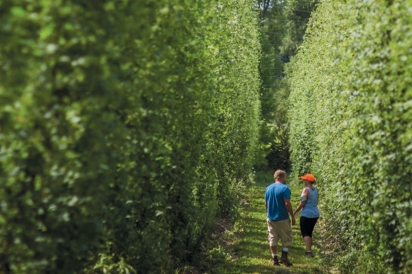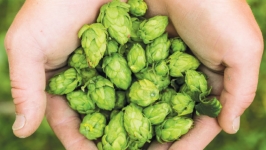Hops Farms Return to Michigan
To Midwesterners, hops farms seem unusual to the landscape. Towering trellises and long, climbing vines make an exotic contrast to familiar fields of corn and orchards of apples. These striking farms might appear new to the agricultural scene in Michigan, but they mark the revival of an old and enduring industry.
"Many people don’t know that farmers were growing hops early in our state’s history,” says Susan McCabe, owner of Ribbon Farm Hops in Detroit. “They went out of business due to Prohibition and viruses and the economies of scale of the larger Pacific Northwest hop farms. In the last 10 years, you started to see people growing hops again, due to the craft beer movement and an interest in local ingredients.”
As a former museum curator with a background in agricultural history, McCabe’s interest in hops first came from a historical perspective as she discovered its early roots in Michigan in the late 19th century. When she learned that an effort was being made to reintroduce hops to Michigan, she took a class on hops production and came away convinced that she had found her next venture.
She and five families joined together to create a small business, named after the French Ribbon Farm sites—the long, narrow farms situated along the Detroit River near the original French settlement, now Historic Fort Wayne.
Combining a love of Detroit and the urban farming movement, McCabe started an experimental-sized farm on an inner-city lot, partnering with Detroit Tube Products, which creates prototype trellises out of metal. “We grow five different varieties of very premium hops that we hand pick, dry, package and sell to home brewers,” she says. “We use organic methods, capture rainwater for irrigation and use compostable, sustainable and reusable packing. We’re concerned about the environment and our community.”
McCabe also explores alternative uses of hops. “There’s a long history of medicinal use, due to antibacterial and relaxing properties, similar to lavender. We make sachets, neck pillows, even holiday ornaments and boutonnieres for weddings.”
“Hops are great plants,” she says. “They grow tall like Jack and the Beanstalk, four to five inches a day. It’s so much fun watching the plants grow and at the end, you get to taste beer. It’s a very good gig!”
Sean Trowbridge of Top Hops Farm is working to build a sustainable family hops farm in Goodrich. “We experimented with the plants for three years, and they seemed to do well on our land. With the uptick in the craft beer industry, we decided to make the commitment and now grow 16 acres,” he says.
That much acreage required a substantial financial commitment, including the purchase of a picking machine, dryers and freezers. “It’s a huge investment. It takes a long time to get a return on investment, but we needed to have the equipment to show brewers that we’re serious. It’s one thing to grow local hops, but another to grow top-quality hops.”
The right nutrition, pest and disease management, proper drying and storage methods all affect the quality of hops, says Trowbridge. “It’s important to keep the quality high, because bad hops affects the reputation of all Michigan hops.” Trowbridge has seen quick growth in his business and is already working with 30 breweries in Michigan and 10 in other states. “We don’t want to turn into a corporation. We just want to stay a family farm and not do more than we need to.”
Trowbridge is a board member of the Hops Growers of Michigan, which advocates for the industry and hosts annual tours for the public. “Community education is important. People have a great time on these tours,” he says.
Matt McFarland and Jason Woods run ChurchKey Farms in Deerfield. Woods is a fifth-generation farmer and a major player in the seed corn industry. McFarland grew up on a smaller farm and has a degree in construction/project management.
McFarland became interested in the craft beer market years ago, when local brewers complained about their struggle to get the hop varieties and quantities they needed. “They would be forced into an expensive, long-term contract and if the company couldn’t supply the variety they wanted, [the company] could change it,” he says. “Consistency is hard when that happens. These small brewers were stuck being small, because they couldn’t get into production with a consistent flavor and aroma.”
Knowing that consumers of craft beer also love locally grown hops, they decided to try growing hops to help supply Michigan brewers. “It just exploded and was more viable than we expected,” says McFarland. “Our farm is one of the southernmost in Michigan, along the old Lake Erie Watershed, with fertile, silty loam soil. It’s really ideal for growing the crop.”
Before jumping right into the market, they did their research and planted the crop based on contracts. They currently have 15 acres of hops and expect to plant another 10–20 acres within two years. “We’ve been growing hops for four years, but we started making connections earlier, for our future crops, rather than planting something and struggling to sell it,” says McFarland. “We plan to be up to 60 acres in five years. We sell to 10 breweries in Michigan, and we’re also moving product to Ohio, DC, Maryland and Virginia, and internationally to South Korea.”
For McFarland, it’s really exciting to be a part of the craft beer industry. “I’ve always wanted start up a new farm operation. The whole craft beer scene is really fun. You get as much publicity as the brewer. People are excited to hear about the farm, about what you do and what you grow,” McFarland says. “It’s also fun to be a part of this ever-changing, growing beer market and being a part of a group that’s helping lead the way into new territory for Michigan.”








